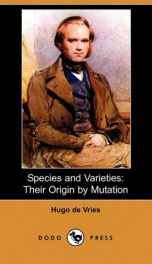Purchase of this book includes free trial access to www.million-books.com where you can read more than a million books for free. This is an OCR edition with typos. Excerpt from book: the class of objects has a peculiar property, the naming of that may serve as a definition. If no peculiar property can be detected, the definition should name more than one quality or property. Several different classes may have one or more properties alike, but as the number is increased the likelihood of there being others having the same properties is decreased. The briefest possible statement of such properties or qualities as are possessed by all the objects of a class and not completely possessed by any other objects, which will suffice to distinguish the class from other classes and determine its position in the general classification, will be most satisfactory. To define any species, the genus having been defined, the genus should be named and the difference added. Of course, no generic definition should contain any limitation not characteristic of every species of the defined genus. In seeking qualities by which to describe a genus or species, no accident should be selected. Example: Suppose there be marked out and defined as a genus all means whereby one form of energy is transformed into another form of energy and no more, and the genus be named energy-transformers. We may then name, as species, energy-transformers that are motors and energy-transformers that are not motors. Motors may be defined by merely naming the genus energy-transformers, and stating the difference, to wit, continuously transforming energy into cyclical mechanical motion. Then the definition will be: Energy-tranpformers that are adapted to continuously transform energy into cyclical mechanical motion. The non-motor division will retain the genue definition. It would not be illuminating for a searcher having little familiarity with the textile arts to look under the title "Carding" and find t...














